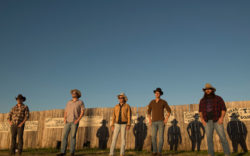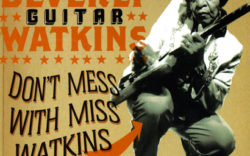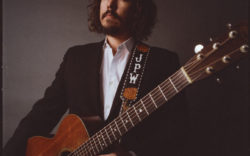Jefferson-raised country singer Corey Smith has built a grassroots audience over the past 15-plus years by taking songs rooted in personal experiences to a nation full of small-town dreamers. Much of this audience was built by playing whenever and wherever, from open-mic nights in Carrollton during Smith’s year at the University of West Georgia to the bars on Clayton Street he revisits in the song “Twenty-One.” It’s a do-it-yourself attitude, not unlike the approach taken by the cool-for-being-uncool artists more synonymous with Athens music.
“It was really just a function of this idea that, in order to succeed in music, I didn’t have to fit a certain mold or do things a certain way,” Smith says. “I felt like there were people around responding to my music in a positive way. I just wanted to go wherever I could to get close to people.”
With all due respect, Smith isn’t notably cool or uncool. He’s a regular guy, raising a family in his nearby hometown. Although years of touring and the success of 2011’s The Broken Record allow him to play larger venues than before, he still thrives on reaching other regular folks.
Much of Smith’s appeal stems from his songs’ sense of place. In most instances, those places are around Athens. “It’s where I went [during] the most formative years of my life as a teenager, going down there and making poor choices and later going to school there,” he says. “Even now, that’s where we go to the movies.”
In “Twenty-One,” teenagers can hear lyrics about going to college bars with a fake ID and either relate or wish they had such nerve. Smith’s fellow thirtysomethings can either look back and smile or wonder why they were such knuckleheads. In any case, this and other staples of Smith’s setlist speak to a wide audience, regardless of venue size.
“It’s the songs, not the environment, that connects with the crowd,” Smith adds. “At the end of the day, a lot of that stuff doesn’t matter—how big the light show is, or how big the band is. A lot of those things didn’t matter back then. It was just the songs, and a lot of those songs resonated with people.”
Mentions of Smith’s Athens experience add some of that authenticity country audiences crave. They don’t, however, limit his appeal or relatability to a geographic area. “Springsteen wrote about the Jersey Shore a lot, and a lot of people have not been there,” Smith says. “Springsteen’s done OK.”
Ten albums into his career, Smith produces his own recordings with the money fans spend on concert tickets or prior releases. This allows for uncompromised artistic expression, as Smith remains the type of artist who isn’t strong-armed into churning out radio hits.
Despite the singer-songwriter feel of his music, Smith isn’t necessarily against using a hip-hop beat or some other element that, in the wrong hands, can sap all credibility from a country song. It’d just have to suit the song’s vibe.
“I don’t think there are any rules, but I think there’s authenticity,” he says. “That the real thing: Is this music authentic, or is it not authentic? Is this music blatantly copying something else for some purely commercial purpose, or is it an authentic expression? I think that there’s certainly a way to use a drum loop to authentically portray an emotion or idea. “
Smith’s love of UGA football furthers his appeal throughout the football-crazed Southeast. He’s a season-ticket holder, even if he’s on the road every fall. Wisely, Smith tries to avoid Southeastern shows on football Saturdays, instead touring parts of the country where they don’t win national titles.
A Chicago show the night before the Dawgs visit Notre Dame sets up that dream fan experience nicely, but otherwise Smith is going to spend most of football season working while trusting that Kirby Smart does just as well at his own job.
“As I’ve gotten older, I’ve learned to not take it quite so seriously,” Smith says. “It still stings when we lose, but it doesn’t ruin my week anymore. There’s times I have to play, and I’ll be on stage when the game’s on. I’ve had to learn to put it in the back of my mind somewhere. Or I have to play right after we lose a big game, and that can kind of suck. That’d be worse if I hadn’t learned how to compartmentalize it a little bit.”
Whatever school’s ball cap they wear, or wherever they spent their formative years, Smith’s devoted fan base has allowed him to build a career on his own terms. No wonder he’s named his current tour “The Great Wide Underground.”
Like what you just read? Support Flagpole by making a donation today. Every dollar you give helps fund our ongoing mission to provide Athens with quality, independent journalism.










